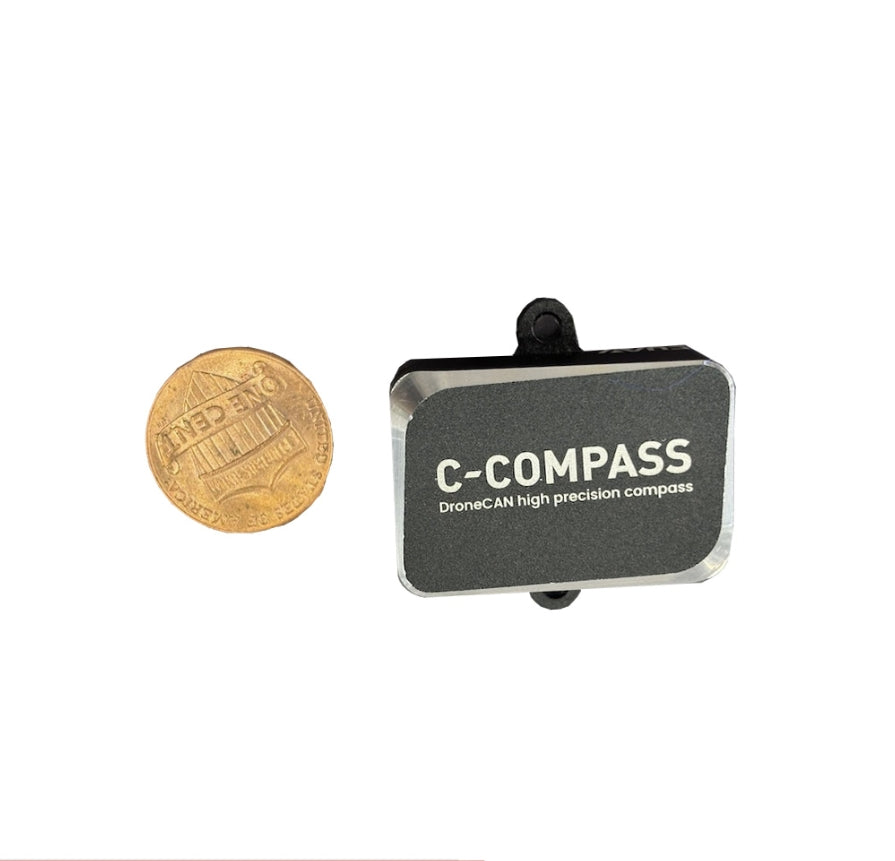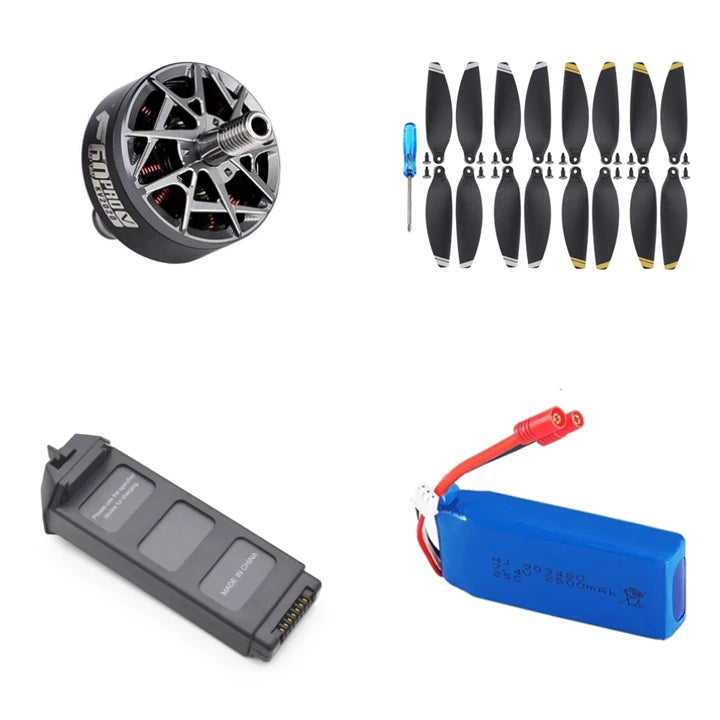The CUAV C-Compass is a high-precision compass and magnetometer designed for professional use. It features the RM3100 industrial-grade magnetometer, a revolutionary sensor that has transformed magnetic field measurements with its exceptional resolution and minimal noise interference.
CUAV C-Compass Specifications
- Processor: STM32F4 100MHz
- Magnetometer: RM3100
- Communication Protocol: DroneCAN/UAVCAN
- Communication Speed: 2Mb
- Refresh Rate: 80Hz
- Noise: 15nT
- Accuracy: 0.25° (Effective Value)
- Roll Angle Accuracy: 0.05°
- Resolution: 0.01°
- Sensitivity: 13nT
- Measurement Range: -800μT to +800μT
- Compatible Control Types: PX4/ArduPilot (CUAV/Pixhawk, etc.)
- Connector Type: GHR-04V-S
- Operating Voltage: 4.75-5.3V
- Operating Temperature: -20°C to 85°C
- Operating Humidity: 5%-95% (Non-condensing)
- Exterior Material: Alloy
- Weight: 13g
Note:The price is not the real price, please send us a message if you want to buy
CUAV C-Compass Features:
- Advanced Sensor: Utilizes the RM3100 magnetometer, known for its superior resolution of 10 nanoteslas (10 nT) and more than 20 times lower noise compared to leading Hall Effect sensors.
- High Accuracy: Ensures precise navigation and reliable heading reference, even in the presence of external magnetic interference and noise.
- Processor: Powered by a 100MHz STM32F4 processor with an integrated M4C software architecture.
- Communication: Supports high-speed CAN bus communication with DroneCAN protocol, ideal for long-distance data transmission and reducing the number of occupied interfaces.
CUAV C-Compass RM3100 Sensor Description
The CUAV C-Compass is a compact and reliable module designed to eliminate magnetic interference and noise from external sources, ensuring high accuracy in heading and orientation calculations. Its user-friendly design allows for seamless integration, eliminating the need for temperature calibration while delivering consistent, high-performance results. Ideal for applications demanding superior accuracy, the C-Compass supports precise navigation through waypoints, mitigating disturbances caused by motor coils and metallic components.








Related Collections


Explore More Drones & Accessories
-

Camera Drone
Our Camera Drone Collection features a wide range of brands including FIMI,...
-

Drone Accessories
Discover a wide range of drone accessories to enhance flight performance, extend...




